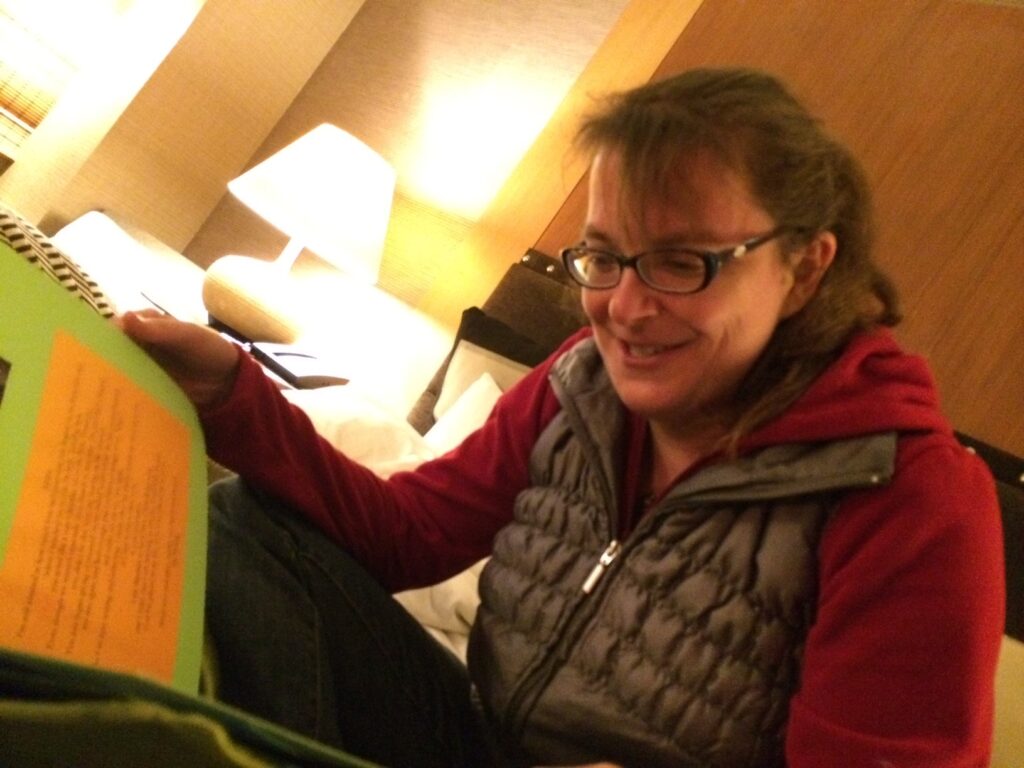Denouement (“day-noo-MON”) Editing offers comprehensive proofreading services for a wide range of written content. Whether you require assistance with manuscripts, letters, poems or personal writing, I can provide the expertise to ensure your work is error-free and polished.
At Denouement Editing, I understand the importance of delivering accurate and polished content. I have the experience and the Bachelor’s Degree to understand what you’re trying to say. I’ve edited manuscripts for bestselling authors, and I will meticulously review your manuscript to eliminate grammar errors, improve sentence structure, and enhance overall readability. With my attention to detail, you can trust that your work will be flawless.
I believe that quality proofreading should be accessible to everyone. That’s why I offer my services at competitive rates, ensuring that you receive exceptional value for your investment. With Denouement Editing, you don’t have to compromise on quality or break the bank.
I understand that deadlines are important; as such I pride myself on my prompt turnaround time. Whether you need a quick proofread or a more comprehensive editing service, I can accommodate your timeline without sacrificing the quality of our work.

Developmental Editing
A developmental edit happens early in the writing process, often when an author has an idea for a book or a rough outline, but they need help bringing the pieces together. A developmental editor looks at the big picture with your book, focusing on organization and structure more than word choice, punctuation, and grammar. They help ensure your arguments line up, reduce inconsistency, that your stories are in the right place, and that everything flows. Are you leaving out any key details? Is there irrelevant material that needs to be cut These are the types of questions a developmental editor should answer for you, along with helping you fix what’s not working and amp up what’s working well in your book.

Content Editing
(Also called: substantive editing or full editing.)
Whereas developmental and evaluation edits look mainly at big picture issues, a content edit is the level at which an editor also starts to dig into the words on the page. In addition to evaluating the structure of your book, a content editor reads and carefully edits the manuscript with an eye on the completeness, flow, and construction of ideas and stories, working paragraph by paragraph and chapter by chapter. A content editor should provide you with a paragraph-level set of markups on your manuscript, offering corrections, pointing out incomplete sections, and offering advice on smoothing the flow and construction of your chapters, sections, and subsections. A key focus for a content edit should also be the tone and voice of your manuscript. A content editor should be aware of your target audience to ensure that the way your content comes off (tone) is a good fit for that audience, and that the writing sounds like you (voice). They help refine your language for your intended audience. The key difference between a content edit and a line edit (two terms that are often used interchangeably) is that a content edit is not as detailed as a line edit. It exists between the high-level view of a developmental or evaluation edit, and the ground-level view that a line editor takes as they work through each line of your manuscript. A content editor won’t move your chapters around, but they will move sections or paragraphs around within your chapters, move content to different chapters, or delete content entirely. Think of it this way: a developmental or evaluation editor helps you build the house (the book) and figure out which rooms (chapters) should go where. With those rooms in place, the content editor’s job is to help you arrange the furniture (sections and paragraphs) inside those rooms in a way that’s appealing. Unlike line editors, they’re not concerned with the decorations (sentences).

Copy Editing / Proofreading
When you have a finished manuscript—and I mean completely finished, not one that’s close to done or has a few gaps to fill in—it’s time to hire a copyeditor. A copyeditor will meticulously go through your book and find the spelling, punctuation, and grammar mistakes. That’s right—no matter how confident you are that your manuscript is mistake free, there are mistakes in there. When you read your book out loud (which all authors should do), you’ll catch the sloppy mistakes and wording issues, but you’ll miss the stuff that copyeditors search for: small grammatical rules that native English speakers often don’t even realize exist. There is a lot of data on this, but average people only detect about 60 percent of errors, and even professionals usually only catch about 85 percent. That’s why copyediting and the next type of editing (proofreading) should be in tandem. Copyeditors not only find mistakes, they also check that your book follows the style guide appropriate for your genre (most books use the Chicago Manual of Style). Even if you think having your neighbor read through your book is enough to find all the spelling, grammar, and punctuation mistakes (which it’s not), unless that neighbor is a professional copyeditor, they won’t know how to style your book correctly. The kinds of mistakes copyeditors catch are not life threatening, but they make the difference between a professional book and one that comes across as amateur.

Trust Denouement Editing for Quality Proofreading & Editing Services
Whether you need Developmental Editing, Content Editing, or Copy Editing/Proofreading, I’d love to be part of your writing journey!
Thank you,
Janine
